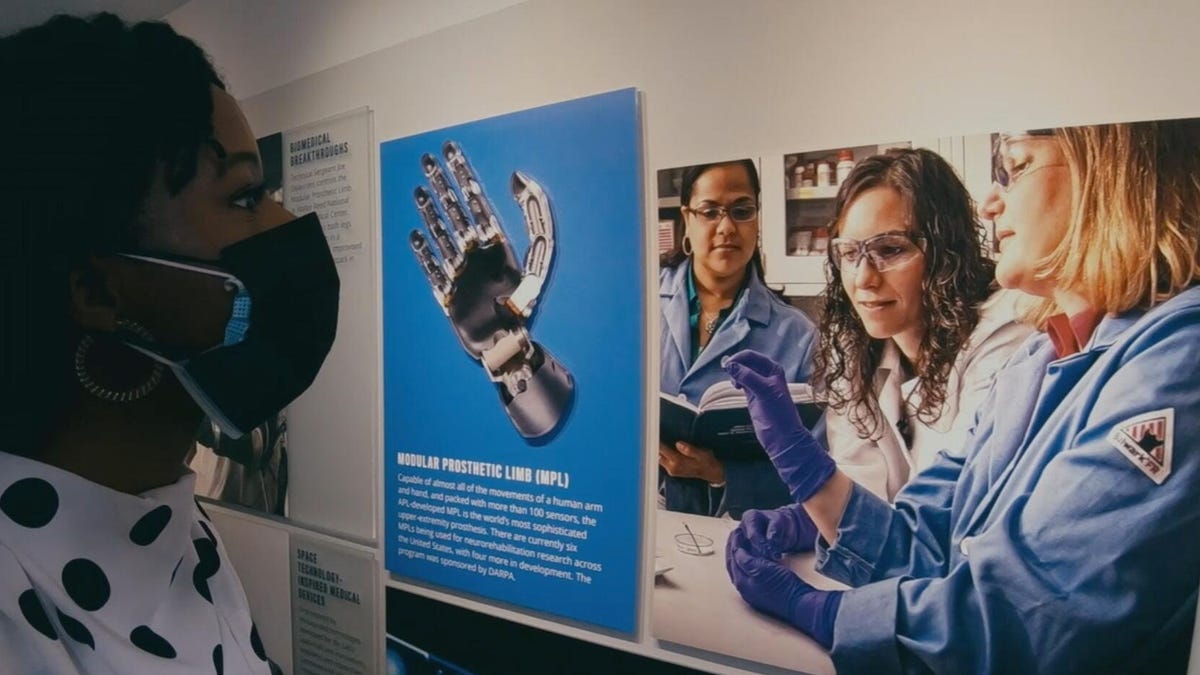In docuseries Not the Science Type, trailblazing women buck stereotypes
Get an exclusive look at the trailer for the four-part docuseries streaming later this month on Apple TV and Google Play. It highlights women in STEM fields.

"I was the first Black woman to get a Ph.D. in nuclear engineering," says Ciara Sivels, a nuclear engineer with Johns Hopkins Applied Physics Laboratory. "I saw that as an opportunity to open the door for people that look like me to come and be involved in these fields."
There's a stereotype of scientists, the trailer for docuseries Not the Science Type tells us, "that they're male, and they're boring, they don't dress well, and they've very awkward."
"I'm obviously not that type," says microbiologist Jessica Taaffe, looking directly into the camera with an unflinching gaze.
Taaffe is one of four female scientists spotlighted in the four-part series, which explores the negative impact stereotypes can have on STEM diversity, equity and inclusion. The series will have its world premiere on June 17 during the Tribeca Film Festival, and it'll stream on platforms including Apple TV and Google Play the same day. It's directed by documentary filmmaker Julio Palacio.
The women who share their stories in Not the Science Type have followed different paths to science success, but they share a common experience. All have felt excluded in traditionally homogenous fields.
Chemical engineer Jayshree Seth has 72 patents to her name.
In addition to Taaffe, the featured women include Jayshree Seth, a chemical engineer at 3M with 72 patents to her name, and Ciara Sivels, a Johns Hopkins nuclear engineer. "I was the first Black woman to get a Ph.D. in nuclear engineering," Sivels says in the trailer. "I saw that as an opportunity to open the door for people that look like me to come and be involved in these fields."
Then there's 15-year-old scientist and inventor Gitanjali Rao, Time Magazine's Kid of the Year in 2020. She beat 5,000 young Americans for the title.
"A scientist is anybody, and it shouldn't be based on age, race or gender," Rao says in the trailer. "It should be based on our capabilities and our motivation to tackle world problems."
The stories are meant to inspire hope, and a sense of possibility. Even as women advance in STEM fields, they still face challenges, with statistics showing a persistent gender gap in science and tech jobs around the world.
While women make up nearly half of the US workforce, they represent only 27% of STEM workers, according to the US Census Bureau. That's up from 8% in 1970, but it still isn't equal.
And half of young women who go into tech jobs leave by age 35, according to a report out last year from IT consulting firm Accenture and tech education organization Girls Who Code. The women cited noninclusive company culture as the main reason for departing.
Not the Science Type reminds would-be scientists not to abandon their dreams in the face of obstacles. As the poster for the series reads, "your potential is exponential."

